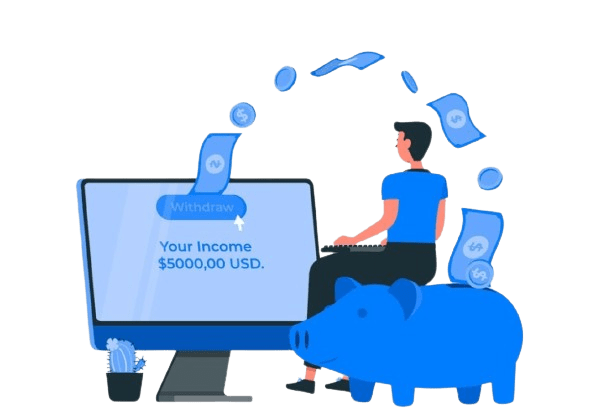
Effective Strategies for Pay Per Click campaigns
PPC advertising is a highly effective digital marketing strategy that enables businesses to display their ads on search engines and other platforms. With PPC advertising, businesses only pay when a user clicks on their ad. As PPC advertising specialists, we recognize the significance of strategic campaign management and optimization. Our primary goal is to ensure maximum return on investment ( ROI ) for our clients. We rely on data – driven insights and best practices to develop a customized PPC strategy that aligns with your business goals and target audience.
Whether you’re seeking to increase website traffic, generate leads, or boost online sales, we’ll assist you in creating highly targeted campaigns that reach the appropriate audience at the right time. However, our commitment to your success doesn’t end there. We’ll provide you with detailed reporting and insights to keep you informed about the performance of your PPC campaigns, allowing you to track ROI and make data – driven decisions for future marketing efforts.
So, if you’re ready to use the power of PPC advertising to boost your online visibility and achieve meaningful results for your business, our digital agency is the perfect choice for you. With our proven track record of success and dedication to client satisfaction, we’re here to help you attain your goals and expand your business through strategic PPC advertising campaigns.
Pay-Per-Click (PPC) advertising is a powerful digital marketing strategy that offers businesses the opportunity to reach their target audience with precision and control. With PPC, advertisers only pay when their ads are clicked, making it a cost-effective and measurable way to drive traffic, leads, and conversions. However, like any marketing tactic, PPC comes with its own set of pros and cons, which businesses must carefully consider when planning their advertising campaigns. On the positive side, one of the key advantages of PPC advertising is its ability to deliver immediate results.
Unlike organic search engine optimization (SEO), which can take time to yield results, PPC allows advertisers to place their ads at the top of search engine results pages (SERPs) almost instantly, driving traffic to their website and generating leads from day one. This speed and agility make PPC an ideal strategy for businesses looking to promote new products, capitalize on seasonal trends, or respond quickly to changes in the market. Moreover, PPC offers unparalleled targeting options, allowing advertisers to reach users based on demographics, interests, search intent, and more.
Platforms like Google Ads and Facebook Ads offer robust targeting capabilities that enable advertisers to tailor their ads to specific audience segments, ensuring that their messages resonate with the right people at the right time. This precision targeting not only increases the effectiveness of PPC campaigns but also helps businesses maximize their return on investment (ROI) by minimizing wasted ad spend on irrelevant audiences. Furthermore, PPC advertising provides advertisers with valuable insights into their audience’s behavior and preferences through detailed analytics and reporting tools.
By monitoring metrics such as click-through rates, conversion rates, and return on ad spend (ROAS), advertisers can gain actionable insights into which ads are performing well and which ones may need optimization. This data-driven approach allows advertisers to continually refine their PPC campaigns, improve their targeting, and maximize their results over time.
However, despite its many benefits, PPC advertising also comes with its share of challenges and potential drawbacks. One of the main concerns for advertisers is the cost associated with PPC campaigns, particularly in highly competitive industries where bidding for keywords can drive up ad costs. Advertisers must carefully manage their budgets and bidding strategies to ensure they are getting the most value from their PPC investment while still achieving their advertising goals. Moreover, PPC campaigns require ongoing optimization and management to maintain their effectiveness and maximize their ROI.
From keyword research and ad copy optimization to bid adjustments and landing page optimization, running successful PPC campaigns requires a significant investment of time, resources, and expertise. For businesses without the necessary skills or bandwidth to manage their PPC campaigns effectively, outsourcing to a digital marketing agency or hiring a dedicated PPC specialist may be necessary, adding additional costs to the overall advertising budget.
In conclusion, PPC advertising offers businesses a powerful and effective way to reach their target audience, drive traffic, and achieve their marketing goals. With its immediate results, precise targeting options, and valuable insights, PPC can be a highly profitable strategy when executed correctly. However, businesses must be mindful of the potential costs and complexities associated with PPC campaigns and be prepared to invest the necessary time and resources to ensure success in the competitive digital landscape.
